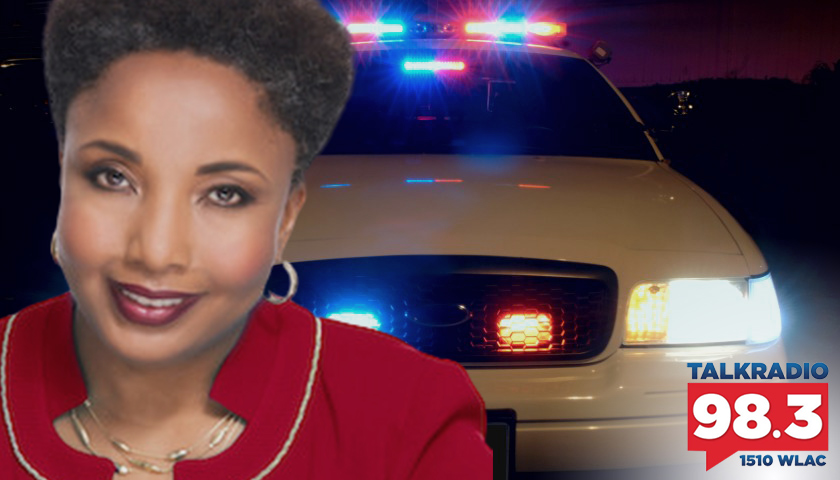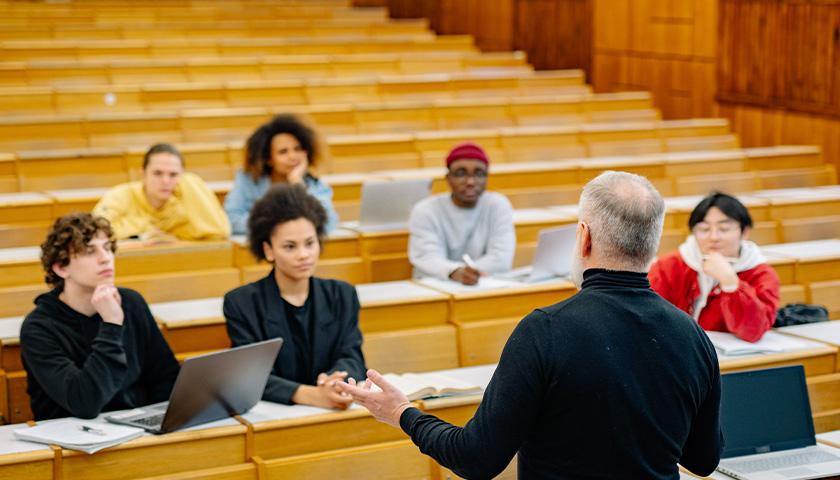Live from Music Row Thursday morning on The Tennessee Star Report with Michael Patrick Leahy – broadcast on Nashville’s Talk Radio 98.3 and 1510 WLAC weekdays from 5:00 a.m. to 8:00 a.m. – host Leahy welcomed all-star panelist, Dr. Carol Swain, to the studio.
During the third hour, Swain discussed the job of police officers and how they have been misrepresented in the news in relation to Black arrests. In response to this, she is spearheading the Be The People Project event to celebrate police officers around the country on October 17th. To attend the virtual event, register at BeThePeopleNonprofit.com.
(US Attorney for the Western District of New York James Kennedy clip plays)
Leahy: The rioters seem to think that the law does not apply to them. And the police officers are constantly finding resistance to arrest. Fights and physical danger, it’s a very dangerous job to be in law enforcement today.
Swain: I would say that it didn’t just start with the riots. We can go back to Ferguson, Missouri, and Michael Brown.
Leahy: 2012 or 2013. Somewhere around that?
Swain: I believe so. And the fact that the message and the narrative came out that he had his hands up. That slogan hands up don’t shoot.
Leahy: That was a claim.
Swain: A claim. Then we learned later from eyewitnesses and lots of evidence that was documented, that that particular scenario never occurred.
Leahy: Yes. It was made up.
Swain: It was totally made up. But it sparked protests.
Leahy: Riots in Ferguson.
Swain: Yes, it did. And I think that black youth and black people have gotten the message for some time now that they can resist authority, or that they should resist authority. Or whenever they are stopped by police, that it’s inappropriate.
Leahy: Well, this must be because Donald Trump is president. Oh, wait, Ferguson. Who was president back then?
Swain: It so far predates Donald Trump.
Leahy: It was Barack Obama.
Swain: It so far predates Donald Trump. And if you go back to when Barack Obama was elected, do you remember the incident with Henry Louis Gates at Harvard?
Leahy: Yes!
Swain: He was a Harvard professor who was locked outside of his home, and he was trying to get inside his home, and someone called the police. And he became belligerent and very arrogant with the police.
Leahy: He locked himself out of the house, and he is black and a Harvard professor. A couple of white police guys came by, and he’s trying to break into this house. The neighbor said somebody is trying to break in the house. And basically they said you can’t do that. Did they end up arresting him?
Swain: They did. But it was because of his behavior.
Leahy: What did he do? I’m trying to recall what he did.
Swain: I don’t remember. But he acted in a very unprofessional and undignified manner. And Barack Obama, who didn’t have all the details, immediately came to his defense and implied that the police officers were wrong.
Leahy: Which was incorrect. They absolutely followed the procedure there.
Swain: Wasn’t that the thing that led to the Beer Summit?
Leahy: So first the President of the United States, you know the great racial healer, Barack Obama. He holds a press conference and is asked about that, and he called the police wrong and unprofessional. And stupid. Or something like that.
Swain: He said they behaved stupidly.
Leahy: Yes. He said they behaved stupidly. So the professor is the one who was kind of behaving stupidly. That’s why he got arrested for the way he reacted to that. And without even looking at the facts President Obama said the police behaved stupidly.
When the facts came out, it became clear that it was Professor Gates who was not acting inappropriately. And the president had to back down. In order to smooth things over with the police, he invited the police officers and Gates to the White House for the Beer Summit.
Swain: That sounds pretty right to me. And that incident did not help. It happened in 2009.
Leahy: 2009?
Swain: The year after President Obama was elected.
Leahy: And you know, everybody said, well we’ve elected the first black president. No more racial problems in America. Not! Gotten worse I think since then.
Swain: Here’s exactly what he said. I don’t know, not having been there and not seeing all the facts what role race played in that. But I think it’s fair to say, number one, any of us would be pretty angry. Number two, that the Cambridge Police acted stupidly in arresting somebody, when there was already proof that they were in their own home. And number three, that I think we know separate and apart from this incident, is that there is a long history in this country of African Americans and Latinos being stopped by law enforcement disproportionately.
Leahy: So he had to backtrack from that Beer Summit. We just have this long problem of basically not giving the police, who are out there on the front lines trying to maintain order. And often the people that are causing all sorts of ruckus are complaining about the behavior of the police, when the police are just doing their job.
Swain: Unfortunately, a lot of the high profile cases involving blacks that had unfortunate encounters with the police, involve people that had criminal backgrounds. Or they were resisting arrests. There are far fewer cases where there were unarmed suspects or unarmed people that were shot by the police for just no reason at all. That’s very rare.
Leahy: It’s the resisting arrest that is the problem.
Swain: It is. And that goes back to a problem I think that we have in the black community where people resist authority. It could be the authority of the school teacher. The authority of a pastor in a church, whatever authority they have.
Or the authority of a police officer. And when I’m stopped by the police, I always assume I did something. If I’m going down the street, and I see the police officer turn around, he doesn’t have to pull me over I just pull myself over to the side. (Chuckles)
Leahy: Yeah. I think it’s just like a standard operating procedure if the police stop you, stop and you comply. That’s the smart thing to do. And if you don’t comply, bad things can happen. It just doesn’t make any sense. You are going to do something about this, Carol. If you go to Be the People Nonprofit, you can see that there will be a virtual event on October 17. A national tribute to law enforcement. Tell us about that.
Swain: We feel that our law enforcement officers need to be recognized for the job that they do. And the overwhelming majority of them are good men and women who risk their lives daily on our behalf. And I have spoken with numerous officers in Nashville and across the country.
And when they tell their stories, most of them are people that are called to law enforcement in the way that one of us may feel called to serve in a particular role. So these are people that have stories. They are people out there trying to make life safe for us and for other people.
Leahy: And they are not getting paid very much. It’s basically middle class.
Swain: No they are not getting paid much. And I have been told that if they actually have to use their gun, it pretty much ruins their life. Even if they are in the right. There is so much headache that comes with having to draw your weapon. And we now have a situation where I believe that law enforcement officers are backed into a corner. And they take an enormous amount of abuse with people throwing urine and feces on them.
And they are expected to stand there and not react. And so they are in a situation where they are being abused by the public. And we need to get control of this. And it’s totally unacceptable to have people that are destroying property. Committing acts of violence. And doing all kinds of illegal behavior. And the law enforcement officers have their hands tied behind them.
Leahy: BeThePeopleNonprofit.com and register for the national tribute for law enforcement on October 17. James Smallwood, President of the National Fraternal Order of the Police, Kenneth Harms, a retired police officer from Miami, and Bob Woodsen is the keynote speaker from the Woodsen Center. A great American. He’s head of the 1776 United Consortium.
Listen to the third hour here:
– – –
Tune in weekdays from 5:00 – 8:00 a.m. to the Tennessee Star Report with Michael Patrick Leahy on Talk Radio 98.3 FM WLAC 1510. Listen online at iHeart Radio.
Photo “Police Car” by Scott Davidson CC2.0





